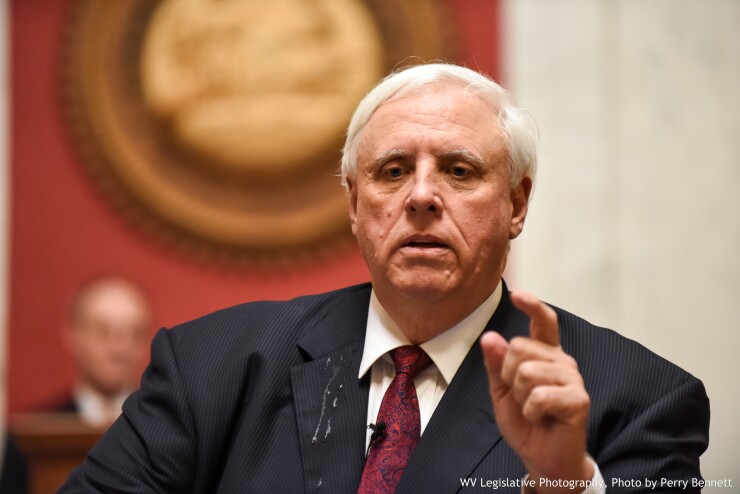BRADENTON, Fla. - As the clock ticks toward a potential government shutdown in West Virginia, a state law ensures that bondholders will be paid if a budget is not passed by July 1.
Gov. Jim Justice, a Democrat, has been locked in a stalemate with the GOP-led Legislature over a spending plan and tax reform for much of the regular session.
The impasse has continued since Justice vetoed the budget and called lawmakers back into the current special session.

On Thursday, Justice sent lawmakers a new bill to consider.
It proposes raising the state sales tax to 6.5% from 5%, reducing the personal income tax rate by 5%, and implementing tax rebates for the two lowest income tax brackets. The measure would raise about $82 million in new revenue.
“If we don’t get this through,” he said about his latest tax proposal, “we’re going to be hurting a lot of people we don’t need to be hurting.”
The Senate reacted quickly Thursday night, passing the governor’s tax measure 30-2 and passing a $4.35 billion budget by 29-2.
Both bills were sent to the House, where some members expressed support for lowering income taxes but not for raising new revenue.
A similar situation occurred last year when former Gov. Earl Ray Tomblin vetoed the fiscal 2017 state budget, in a disagreement with legislators over their plan to close a $270 million gap with cuts and reserves.
At the time, Tomblin said he believed those steps would maintain the state’s structural budget imbalance and endanger the state’s credit ratings.
A government shutdown was looming last year because West Virginia doesn't have a continuing resolution process to operate without an approved budget.
Before coming to agreement on the budget, lawmakers passed a bill authorizing the governor to pay debt service on the state’s bonds and notes in any year that a budget has not been enacted by June 30.
West Virginia had $1.75 billion of gross tax-supported debt outstanding as of March 31, including $322.8 million of general obligation bonds.
On Friday, the House was considering the budget and tax reform bills.
Both chambers are also working on a measure that would provide emergency funding for essential state agencies to operate as well as a process to furlough state employees if a budget is not enacted by July 1.
West Virginia’s growing structural budget imbalance fueled in part by the state’s reliance on declining demand for coal products has led to three rating downgrades.
Moody's Investors Service lowered the state’s GO rating to Aa2 from Aa1 in February.
Fitch Ratings downgraded the GO debt to AA from AA-plus in September, and S&P Global Ratings dropped its bond rating to AA-minus from AA in April 2016.





